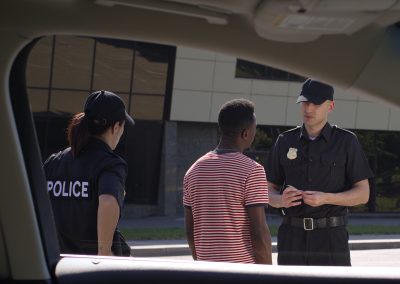A few weeks ago, we celebrated my youngest son’s 16th birthday. He was a late riser that morning – not much of a surprise for a Sunday. My wife and I had just finished our breakfast of bacon and eggs when my son came shuffling out of his room. “I smell bacon,” he said, as he headed towards the kitchen. I called out that all of the bacon was gone, but I may as well have told him all of the world’s bacon was forever gone, never ever to return. “Well, I guess there’s no bacon on my birthday,” he lamented. No doubt another important lesson in adversity for my son.
Organizational adversity
Perhaps now more than ever, officers are faced with a variety of internal and organizational adversities, roadblocks, and setbacks. These may include not getting a desired assignment or shift, being passed over for a promotion, performance scrutiny, an investigation as a result of a use of force incident, or being involved in an internal affairs investigation.
How officers respond to adversity in this occupation profoundly influences professional growth. It also has a direct impact on emotional and physical well-being. Navigating these hardships can be tricky—oftentimes, it is downright exhausting. New officers face challenges in a different way than their seasoned counterparts; nonetheless, all officers experience regular instances of organizational adversity on the job. Learning how to navigate through these difficult situations is paramount to a long and healthy career as a law enforcement professional.
Adversity Training
Have you ever heard of adversity training? Me neither. Are field training programs incorporating adversity training to new officers? Perhaps they should. Chief David Perry, who recently retired from the Florida State University Police Department, teaches courses that focus on training, motivating, and engaging different generations within police workforces. Chief Perry delivers keen insight through one particular course which identifies training issues related to millennial police recruits.
Chief Perry posits that a primary point of adversity—and a barrier to the effective training of new millennial officers—is the fact that they have always been told they can be whomever they want to be. They can be as successful as they want—and, of course, everyone received a trophy. In fact, they have never been told: “they suck.”
Officers will face internal organizational challenges almost immediately upon entering the workforce. New officers who have never experienced real adversity will have a significant reaction to a field training officer who immediately points out several of their deficiencies. This experience is not relegated to only millennials; it is common across many classes of generational workforces. While hugs and hot chocolate are probably not the answer for preparing new officers for when things don’t go their way, field training programs must recognize and address the struggles new officers face regarding internal organizational adversity.
Recommendations
An agency’s field training program is the time when new officers really begin to learn about the job. It’s the moment they finally experience the reality of police work. This time has an extreme influence on new officers, and it’s a great opportunity for training officers to model excellence in leadership, knowledge, and mentoring. Addressing organizational issues which may be a source of adversity and having meaningful discussions about them is a must.
A field training officer can provide the trainee real-life examples of internal adversities the training officer had to face and overcome. Training officers are in a great position to give recommendations to new officers on how to prepare for when things just don’t go their way.
Training officers must always refrain from sharing comments with new officers that criticize the organization or are disparaging to the agency and its processes. Instead, prior unpleasant incidents can be used as teaching tools to uncover solutions or strategies related to mitigation and recovery. These teaching moments are incredibly helpful to a new officer, and they will be much better prepared when they encounter similar situations.
The Wrap Up
Every organization experiences internal adversity. Overcoming these adversities is not always an easy task. If you look around within your own agency, you will find line supervisors, middle management, and command staff members who have overcome many adversities along the way in order to attain their personal and professional accomplishments.
Adversity is a hidden necessity for personal and professional growth. This growth can help you better deal with future adversities – like when there is no bacon on your birthday.










0 Comments